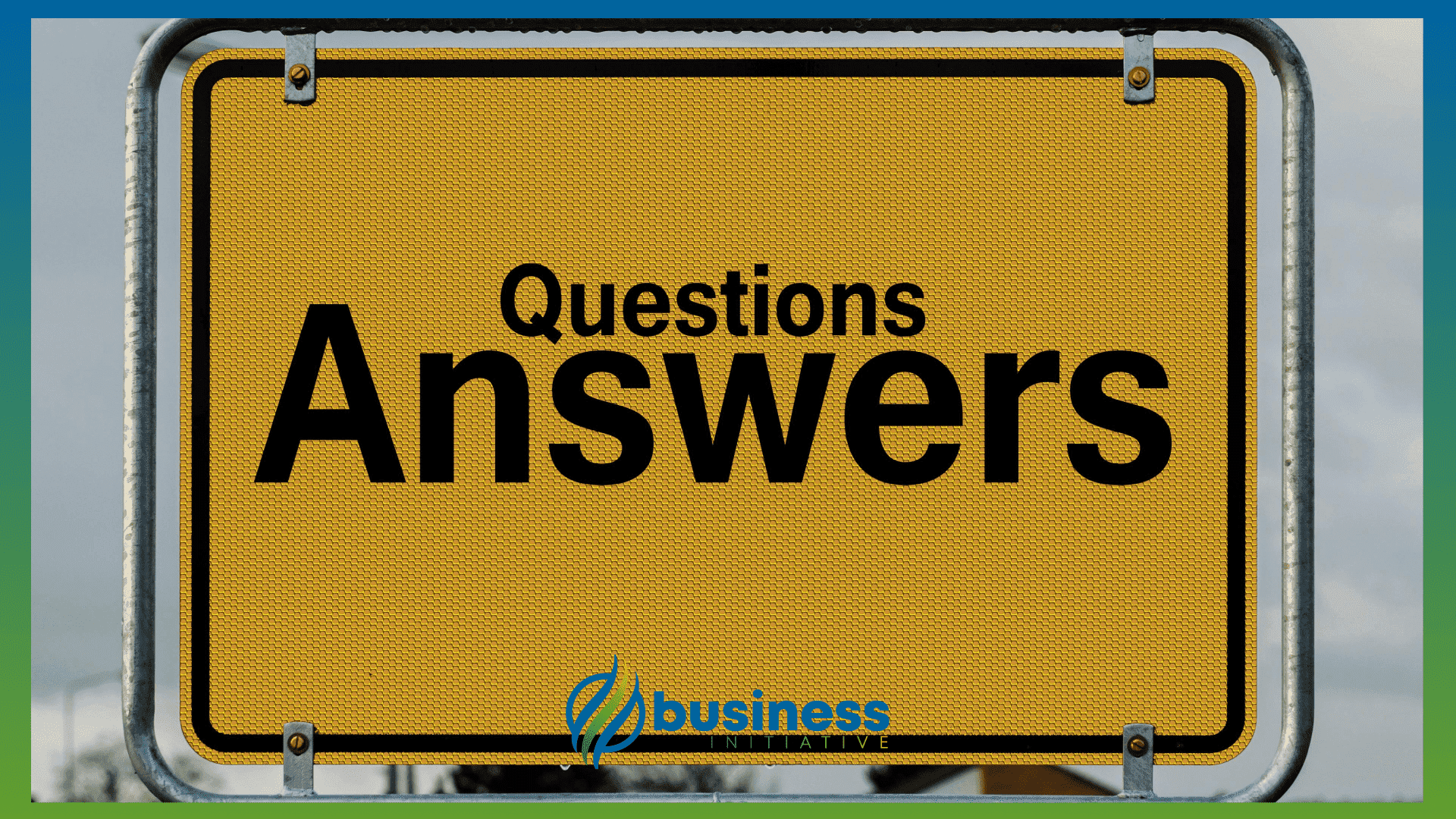Limited Liability Companies (LLCs) are a popular choice among entrepreneurs and business owners due to their flexibility and protection from personal liability.
However, navigating the legal landscape of an LLC can be complex, with numerous legal issues arising along the way.
 Key Takeaways
Key Takeaways
- Understand and meet product safety standards to avoid liability issues and protect your business from lawsuits.
- Draft clear, comprehensive contracts and include dispute resolution mechanisms to prevent and manage contract disputes.
- Stay updated on employment laws and implement clear policies to avoid costly lawsuits and ensure compliance.
- Protect your intellectual property by registering trademarks, copyrights, and patents to safeguard your business assets.
- Establish robust compliance programs to adhere to federal, state, and local regulations, minimizing risks of fines and penalties.
In this article, we’ll explore common legal challenges faced by LLC owners, such as contract disputes, employment law, regulatory compliance, and liability concerns.
We’ll also provide practical tips for avoiding legal pitfalls and resolving disputes.
By understanding these legal aspects, entrepreneurs and business owners can pave a smoother path to success for their businesses.
What are Legal Issues?
Definition: A legal issue is any matter or dispute that involves the application of laws and regulations.
In the context of LLCs, legal issues can arise in various areas such as contract law, employment law, intellectual property law, tax law, and regulatory compliance.
Some of the most common legal issues LLC owners face today include:
It’s important for LLC owners to have a basic understanding of these legal issues and how they can impact their businesses.
By identifying potential legal issues early on and seeking appropriate legal guidance when necessary, you can mitigate risks and protect your businesses from potential liabilities.
Product Liability
If an LLC sells a defective product that causes harm to consumers, it may face legal action for product liability.
LLCs can mitigate this risk by ensuring their products meet all safety standards, providing clear warnings and instructions, and carrying adequate insurance.
In 2019, a California jury awarded $2 billion to a couple who claimed that the glyphosate in Roundup weed killer caused their cancer.
The lawsuit was against Monsanto, which is owned by Bayer.
Practical lessons:
-
Provide clear warnings and instructions.
-
Carry adequate insurance.
Contract Disputes
Contract disputes are a common issue faced by LLCs.
Whether it’s with suppliers, customers, or partners, these disagreements can arise from miscommunication, unclear terms, or breaches of contract.
For example, the high-profile case of Waymo v. Uber involved a dispute over intellectual property and trade secrets between two well-known companies, ultimately resulting in a $245 million settlement.
Practical Lessons:
-
Draft clear and comprehensive contracts: Engage a qualified attorney to help draft and review contracts, ensuring that all terms and conditions are explicit and well-defined.
-
Establish dispute resolution mechanisms: Include provisions in contracts that outline the steps to follow in case of a dispute, such as mediation or arbitration.
-
Maintain open communication: Encourage open dialogue and maintain clear lines of communication with all parties involved in contracts to address issues before they escalate into disputes.
Employment Law
LLCs must also adhere to various employment laws, including wage and hour regulations, workplace safety, and anti-discrimination laws.
Employment lawsuits can be costly and damaging to a company’s reputation.
A notable example is the Darden Restaurants wage and hour lawsuit, which resulted in a $2.85 million settlement for allegations of underpaying employees.
Practical Lessons:
-
Stay informed: Keep up-to-date with changes in employment laws and regulations to ensure compliance.
-
Implement effective policies: Develop and enforce clear workplace policies, including employee handbooks, to avoid misunderstandings and potential legal issues.
-
Train management and staff: Offer regular training to ensure that employees at all levels understand their rights and responsibilities under employment laws.
Intellectual Property Disputes
LLCs may face challenges related to trademarks, copyrights, patents, or trade secrets.
It is important for LLCs to protect their intellectual property by registering trademarks and copyrights and obtaining patents where applicable.
LLCs should also conduct thorough research to ensure that their use of intellectual property does not infringe on the rights of others.
In the event of a dispute, LLCs should seek legal counsel to navigate the complex legal landscape of intellectual property law.
Here’s a time when this happened:
In 2019, the popular video game company, Epic Games, faced a lawsuit from a rapper named 2 Milly who claimed that the company had stolen his dance move and used it in their game, Fortnite, without his permission.
This case highlights the importance of protecting intellectual property, as well as the potential legal consequences of failing to do so.
Practical lessons:
-
Protect intellectual property by registering trademarks and copyrights and obtaining patents where applicable.
-
Conduct thorough research to ensure that the use of intellectual property does not infringe on the rights of others.
-
Seek legal counsel in the event of a dispute to navigate the complex legal landscape of intellectual property law.
Regulatory Compliance
LLCs must comply with various federal, state, and local regulations, depending on their industry and location.
Non-compliance can result in fines, penalties, and even suspension or revocation of licenses.
For instance, Theranos, the now-defunct blood-testing company, faced severe regulatory consequences due to fraudulent practices, ultimately leading to its downfall.
Practical Lessons:
-
Research and understand applicable regulations: Consult with legal and industry experts to ensure complete understanding of the regulatory landscape.
-
Implement compliance programs: Establish systems to monitor and maintain compliance with all relevant regulations.
-
Regularly review and update processes: Periodically evaluate the effectiveness of compliance programs and make necessary adjustments to stay compliant.
Debt Collection
If customers or clients fail to pay for goods or services provided by the LLC, debt collection efforts may be necessary.
LLCs should establish clear payment terms and policies and communicate them to customers.
In the event of non-payment, LLCs should follow up promptly and professionally to collect the debt.
If necessary, LLCs may need to engage the services of a debt collection agency or pursue legal action to recover the debt.
Here is a real-world example of this:
A small business owner in California had to hire a debt collection agency to recover $3,000 in unpaid invoices from a customer.
The business owner had already made multiple attempts to contact the customer and collect the debt, but was unsuccessful. The debt collection agency was able to recover the full amount owed.
Practical lessons:
-
Establish clear payment terms and policies and communicate them to customers.
-
Follow up promptly and professionally to collect the debt in the event of non-payment.
-
Consider enlisting the services of a debt collection agency or pursuing legal action to recover the debt if necessary.
-
Keep detailed records of all communication and attempts to collect the debt.
-
Be aware of and comply with all applicable laws and regulations related to debt collection.
-
Treat customers with respect and professionalism throughout the debt collection process.
Tax Issues
LLCs must comply with various tax laws and regulations at the federal, state, and local levels.
LLCs should consult with a tax professional to ensure that they are meeting all of their tax obligations and taking advantage of any available tax benefits.
LLCs should also keep accurate and detailed financial records to facilitate tax compliance and reporting.
A small business owner in California who operates as an LLC must comply with state and federal tax laws.
They consult with a tax professional to ensure compliance and take advantage of tax benefits. They keep detailed financial records to facilitate tax reporting.
Practical lessons:
-
LLCs must comply with various tax laws and regulations at the federal, state, and local levels.
-
Consult with tax professionals to ensure that you are meeting all of your tax obligations and taking advantage of any available tax benefits.
-
Keep accurate and detailed financial records to facilitate tax compliance and reporting.
Environmental Concerns
Depending on the nature of their business activities, LLCs may need to comply with environmental laws and regulations.
LLCs should conduct a thorough environmental assessment to identify potential risks and develop a plan to mitigate them.
This may include implementing environmentally-friendly practices, obtaining necessary permits, and establishing emergency response procedures.
LLCs should also stay up-to-date on changes to environmental laws and regulations that may impact their operations.
In one instance, a famous California LLC was fined $1.5 million for violating environmental regulations related to hazardous waste disposal.
Practical lessons:
-
Conduct a thorough environmental assessment to identify potential risks and develop a plan to mitigate them.
-
Implement environmentally-friendly practices.
-
Establish emergency response procedures.
-
Stay up-to-date on changes to environmental laws and regulations that may impact your operations.
Breach of Fiduciary Duty
LLC owners owe a fiduciary duty to one another and the company, which includes duties of loyalty and care.
Breaching these duties can lead to disputes among members or even legal action.
To avoid this issue, LLCs should have clear operating agreements that outline each member’s roles and responsibilities, as well as procedures for handling conflicts.
As proof of this, there was a case of breach of fiduciary duty in an LLC involving a former NFL player.
Practical lessons:
-
Have clear operating agreements that outline each member’s roles and responsibilities, as well as procedures for handling conflicts.
-
** Be aware of their fiduciary duties** of loyalty and care to one another and the company.
-
Act in good faith and with honesty and integrity.
-
Seek legal advice if they suspect a breach of fiduciary duty.
Data Breaches
As more business operations go digital, data breaches are becoming increasingly common.
LLCs must take steps to protect sensitive information from cyber attacks and data breaches.
This may include implementing strong security measures like firewalls and encryption, regularly updating software, and training employees on data security best practices.
In 2017, Equifax suffered a massive data breach that exposed the personal information of over 143 million people.
The company faced numerous lawsuits and investigations as a result.
Practical lessons:
-
Implement strong security measures like firewalls and encryption
-
Regularly update software
-
Train employees on data security best practices
Securities Violations
If an LLC offers securities to investors without complying with federal or state securities laws, it may face severe legal consequences.
To avoid securities violations, LLCs should consult with experienced attorneys to ensure compliance with applicable regulations.
The SEC charged a California-based LLC and its owner with securities fraud for raising over $3.3 million from investors in unregistered securities offerings.
Practical lessons:
-
Comply with federal and state securities laws when offering securities to investors.
-
Consult with experienced attorneys to ensure compliance with applicable regulations.
-
Avoid engaging in any fraudulent or deceptive practices when offering securities to investors.
-
Register any securities offerings with the SEC or applicable state securities regulators, unless an exemption applies.
Liability Concerns
While an LLC provides personal liability protection for its owners, there are still potential liability concerns related to the business’s operations.
For example, BP’s Deepwater Horizon oil spill in 2010 resulted in the company paying over $20 billion in settlements and fines for environmental damages and negligence.
Practical Lessons:
-
Obtain adequate insurance coverage: Secure appropriate insurance policies to protect against potential liabilities, such as general liability, professional liability, and workers’ compensation.
-
Implement risk management strategies: Identify potential risks and develop plans to mitigate or prevent them.
-
Maintain corporate formalities: Regularly update operating agreements, keep accurate records, and hold meetings to help maintain the separation between personal and business assets.
FAQs - Frequently Asked Questions About LLC Legal Complications

What are the most common legal issues LLCs face?
LLCs commonly face product liability, contract disputes, employment law issues, and regulatory compliance challenges.
Learn More...
LLCs often deal with product liability, which involves ensuring products meet safety standards and carrying adequate insurance to avoid lawsuits.
Contract disputes are another frequent issue, often stemming from unclear terms or miscommunication, which can be mitigated by drafting comprehensive contracts and establishing dispute resolution mechanisms.
Employment law issues, such as compliance with wage regulations and workplace safety, require staying informed and implementing effective workplace policies.
Regulatory compliance is critical, as non-compliance can result in fines and penalties. LLCs must understand and adhere to all relevant regulations.
How can LLCs avoid product liability issues?
Ensure products meet safety standards, provide clear warnings, and carry adequate insurance.
Learn More...
Product liability can be avoided by rigorous testing and ensuring all products meet safety standards. Providing clear warnings and instructions helps protect consumers and the business.
Carrying adequate insurance is crucial to cover any potential claims. Regularly reviewing and updating safety protocols can further mitigate risks.
- Test products thoroughly for safety compliance.
- Include detailed usage instructions and warnings.
- Maintain adequate liability insurance coverage.
A real-world example is the Monsanto case where failure to ensure product safety resulted in a $2 billion verdict against them.
What should be included in an LLC's contracts to prevent disputes?
Include clear terms, comprehensive details, and dispute resolution mechanisms.
Learn More...
Drafting clear and comprehensive contracts involves detailing all terms and conditions explicitly. This clarity helps prevent misunderstandings and disputes.
Including dispute resolution mechanisms, such as mediation or arbitration clauses, provides a structured process for resolving disagreements without litigation.
Engaging a qualified attorney to draft and review contracts ensures all legal aspects are covered, reducing the risk of future disputes.
The Waymo v. Uber case highlights the importance of clear contract terms and the inclusion of dispute resolution mechanisms, resulting in a $245 million settlement.
How can LLCs ensure compliance with employment laws?
Stay updated on laws, implement clear policies, and train staff.
Learn More...
LLCs must regularly update themselves on changes in employment laws to ensure compliance with wage, hour regulations, and anti-discrimination laws.
Implementing clear workplace policies, including comprehensive employee handbooks, helps avoid misunderstandings and legal issues.
Regular training for management and staff on their rights and responsibilities under employment laws is essential to maintaining compliance.
The Darden Restaurants wage and hour lawsuit, resulting in a $2.85 million settlement, underscores the importance of adhering to employment laws.
Why is protecting intellectual property important for LLCs?
It safeguards business assets and prevents unauthorized use.
Learn More...
Protecting intellectual property (IP) by registering trademarks, copyrights, and obtaining patents helps secure the business's unique assets and brand identity.
Conducting thorough research to ensure IP does not infringe on others' rights avoids potential lawsuits and legal challenges.
In cases of disputes, seeking legal counsel can navigate the complexities of IP law, as seen in Epic Games facing a lawsuit for allegedly using a rapper's dance move without permission.
- Register trademarks and copyrights.
- Obtain patents where applicable.
- Conduct thorough IP research.
- Seek legal counsel in disputes.
How can LLCs maintain regulatory compliance?
Research regulations, implement compliance programs, and regularly review processes.
Learn More...
LLCs should thoroughly research and understand all applicable federal, state, and local regulations relevant to their industry.
Implementing comprehensive compliance programs that monitor and ensure adherence to these regulations helps prevent fines and penalties.
Regularly reviewing and updating compliance processes is crucial to stay current with regulatory changes.
Theranos' downfall due to severe regulatory violations highlights the importance of maintaining strict compliance with all relevant laws.
- Research applicable regulations.
- Implement compliance programs.
- Regularly review and update compliance processes.
What strategies can LLCs use for effective debt collection?
Establish clear payment terms, follow up promptly, and consider using debt collection agencies.
Learn More...
Clear payment terms and policies communicated to customers help set expectations and reduce non-payment issues.
Prompt and professional follow-up on unpaid invoices ensures timely debt collection and maintains customer relations.
In cases of persistent non-payment, engaging a debt collection agency or pursuing legal action can be effective in recovering debts.
A small business in California successfully recovered $3,000 in unpaid invoices by hiring a debt collection agency, demonstrating the efficacy of professional debt recovery services.
- Establish clear payment terms.
- Follow up promptly and professionally.
- Consider using debt collection agencies.
- Keep detailed records of all communication.
- Comply with debt collection laws.
What are the best practices for LLCs to handle data breaches?
Implement strong security measures, regularly update software, and train employees.
Learn More...
Strong security measures like firewalls and encryption are essential to protect sensitive information from cyber attacks and data breaches.
Regularly updating software to patch vulnerabilities and training employees on data security best practices can significantly reduce the risk of data breaches.
The Equifax data breach in 2017, which exposed the personal information of over 143 million people, illustrates the severe consequences of inadequate data security measures.
- Implement firewalls and encryption.
- Regularly update software.
- Train employees on data security best practices.
In Summary…
If you’re looking to form your own LLC or other business entity, it’s essential to understand the legal landscape and potential challenges that may arise.
By implementing the practical lessons outlined in this article, you can take proactive steps to protect your business from legal pitfalls and disputes.
At Business Initiative, we offer can help you navigate the complex legal requirements of forming and operating an LLC, while also providing guidance on compliance, risk management, and liability concerns.
Don’t let legal challenges hold back your entrepreneurial dreams…
Schedule a consultation call with us today to discuss your legal needs and how we can help. You can also reach out to us directly HERE or by sending us a message @BisInitiative on X.
Let’s turn your business vision into a reality!
Sources
- Monsanto Roundup Case
- Waymo v. Uber
- Darden Restaurants wage and hour lawsuit
- Epic Games 2 Milly Lawsuit
- Theranos Scandal
- Recovering unpaid debts as a small business owner
- LLC laws and regulations
- Hazardous waste settlement
- Athlete Agents and their Fiduciary Duties
- Equifax data breach
- SEC Charges Senior Executives at California-Based Firm in Stock Lending Scheme
- BP's Deepwater Horizon oil spill


